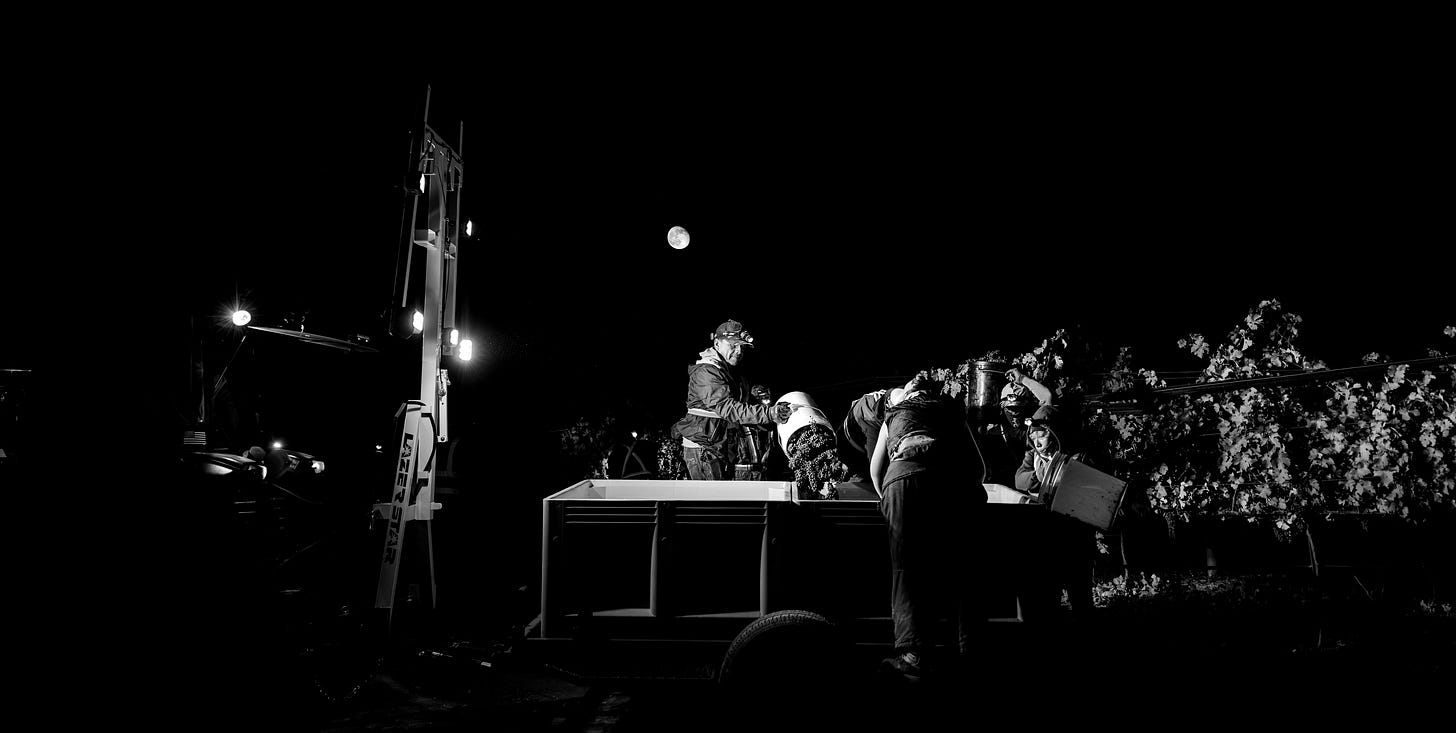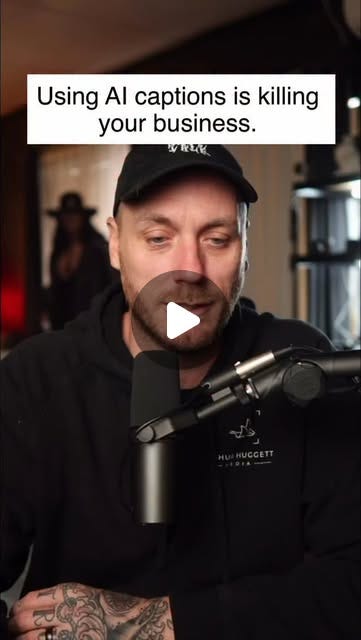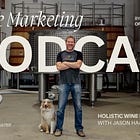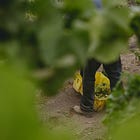What’s Keeping You Up at Night?
Wine industry writing feels stale. Here's how you can fix it.
I don’t really like reading much content from wine industry professionals.
There are a handful of people who’ve managed to capture and keep my attention consistently: Tablas Creek, Antica Terra, Esther Mobley, and Elaine Chukan Brown. But beyond that, I find most wine-industry writing kinda boring.
We’ve beaten the same topics to death: organic vs. conventional farming, Gen Z doesn’t drink wine, “The Most Overrated Wine Region(s).”
To be clear, these aren’t necessarily bad or unimportant conversations (aside from that last one, jesus, get a new talking point). But there is a serious lack of personality in the myriad articles and posts about these topics. For every 20 articles written about how women in wine are undervalued (tell me something I don’t know), there is maybe one that makes me feel like the author is genuinely hot and bothered about it.

What Makes the Exceptions Stand Out (To Me)
The writing that holds my attention isn’t regurgitating tired narratives. The writers manage to inject their own personalities into whatever they are writing about.
They write like they’ve actually been thinking about what they’re saying, as though the ideas have followed them into the shower or have physically shaken them awake.
I, personally, have found that some of my best-performing Substack posts came to me mid-laundry or even in the middle of the night. They were and are the ideas that feel too restless to wait their turn.
I’ve literally pulled off the highway to record a voice note to myself and have dictated half-formed thoughts to my husband, who, bless him, will text them back to me or write them in my notes app when my hands are occupied.
But when I read most wine industry articles, I don’t get the sense that the writer is disturbed (either positively or negatively) by what they’re writing about.
And I think that is what’s missing in most wine writing (including social media posts) these days: personal urgency.
What Keeps You Up At Night?
Not every article needs to be some magnum opus, but my duderino, if you don’t have some kind of point of view on what you’re writing about, then wtf are we even doing here?
So much wine writing sounds like it’s been run through the rinse cycle of consensus. Like the author read something once, nodded, and thought, “Hmm, yes, sounds good, here is my stamp of approval” without taking that topic deeper and asking themselves what it was about that thing that struck a chord with them. Why did it fire them up? Did it make them angry? Sad? Enthusiastic? Curious? Horny?
And This is the Real Problem with AI
This is also the problem with AI-generated writing.
When you don’t inject yourself into it, it’ll just sound like everything else, because that’s the nature of AI: it takes everything on the internet and synthesizes it.
Machines aren’t haunted by an idea the way people are.
This Reel I watched from Australian Wedding Photographer, Josh Hugget, really supports that point. Though he’s talking to fellow wedding photographers here, you can really apply this idea to wine content as well: you want to stand out against the mass of wineries posting about budbreak, or their chardonnay that’s on sale, or whatever, write the caption yourself.
AI is a very useful tool to get the brain wheels turning, but, as we’ve talked about time and again over here, it’s going to regurgitate the same b.s. as everyone else.
I had to come to this conclusion myself after years of using AI to help me write client captions. Those captions are SUPER boring, man!
Wine Writing That Made Me Feel Like the Topic Kept the Writer Up at Night
This blog post by Tablas Creek, which invites you to explore this topic deeper.
This article about non-alcoholic wine by Esther Mobley.
This Substack Post by Antica Terra about Winter
This Full-Pour article by Elain Chukan Brown about ICE and agriculture





